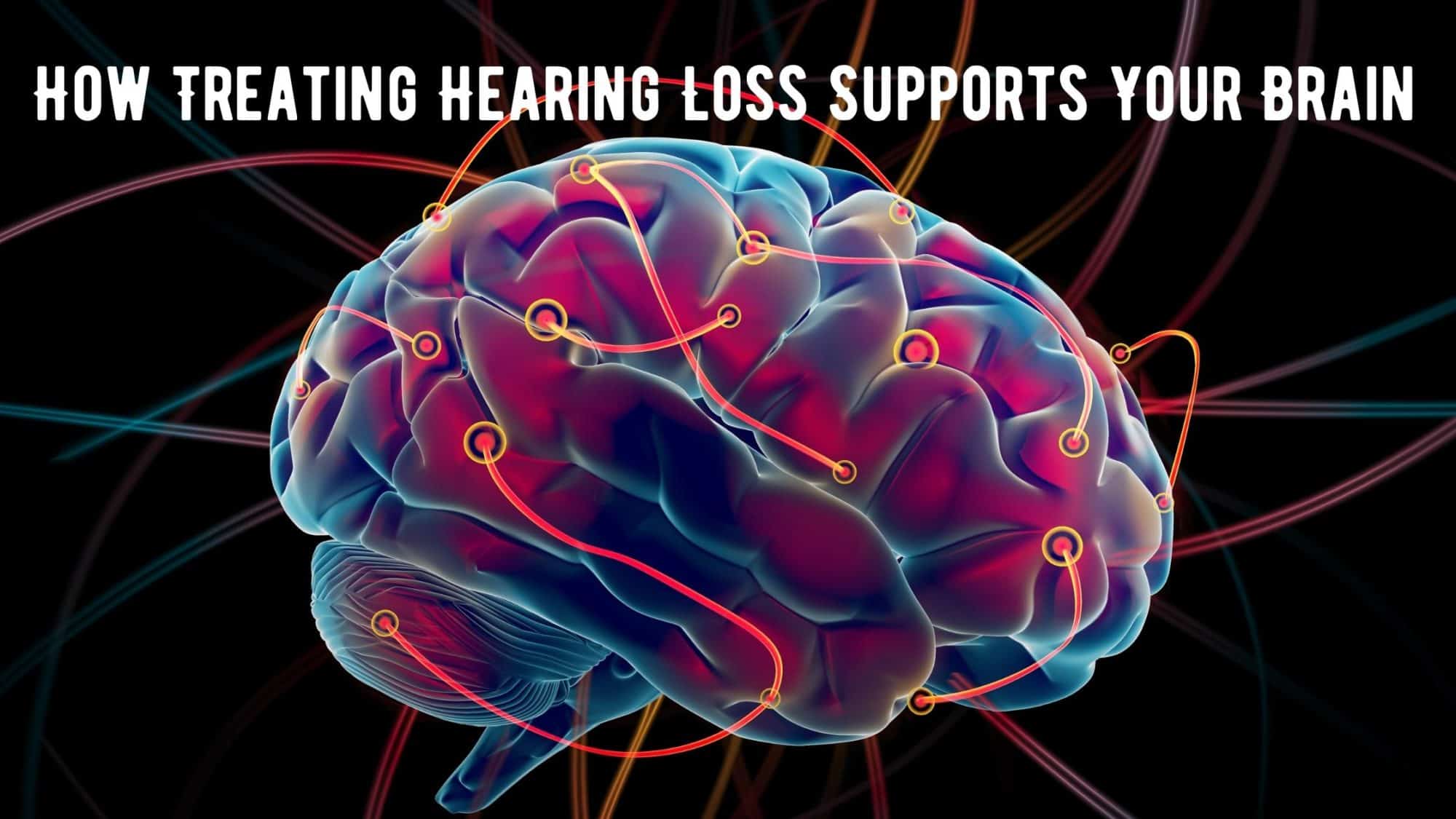- The Connection Between Hearing Loss and Dementia - July 30, 2024
- The Advantages of Rechargeable Hearing Aids - July 16, 2024
- How to Enjoy Music Festivals While Protecting Your Hearing - July 3, 2024
Many adults with later onset hearing loss decline treatment for years, even decades! The average length of time a person lives with hearing loss before opting in on hearing aids is about ten years. That’s a very long time to manage increased labor in communication, loss of closeness with loved ones and even isolation and depression. Upon deciding to treat hearing loss, the vast majority of people with hearing aids report markedly improved communication and restoration of close relationships.
It’s a wonder that folks wait so long to begin with, but even more so when you consider that treating hearing loss can also support the health of one of your most important organs: your brain!
Why people wait to treat hearing loss
There are a number of reasons that people wait ten years before choosing hearing aids. Although healthy hearing is often rated as ‘very important,’ the average person does not schedule regular hearing tests. Think of how often you have your vision checked versus how many times your hearing has been checked in the past five years.
The onset of hearing loss, in age-related and noise-induced hearing loss, can be very subtle. Many people find that their ease in everyday conversations lessens. But again, at such a subtle rate, we humans tend to quickly adapt to such gradual changes. Combined with our lack of diligence in scheduling hearing professional tests, you are often relying upon uncertain self-diagnosis to determine your hearing health.
Moreover, there is still some stigma attached to hearing loss, particularly in our later years. Many people associate this type of hearing loss with getting old. Though the phrase ‘aging gracefully’ is widely used, we are not so adept in our cultural practice of greeting aging with open arms.
Hearing happens in the brain
The ears are the real stars of the show when it comes to our hearing system, but a lot of the action occurs backstage. The ear simply acts as the receiver of sound information, truly it is the fine cells of the inner ear that discern the complex sound information we encounter every day. That information is then transmitted to the brain via the auditory nerve. In the brain’s processing centers, sound information is translated into language and comprehension or environmental sounds, like traffic, birdsong, or your morning alarm.
In cases of age-related and noise-induced hearing loss, the fine cells of the inner ear are damaged, which is why hearing is affected. These cells are numerous, but once damaged, they do not regenerate. Over time, less information is received in the inner ear and sent to the brain.
Our brains are flexible
In the past decade, much new information has been gathered in regards to how our brains act well into our later years. It was once thought that the brain is essentially stable after late childhood. Instead, we now know that our brains are constantly changing to accommodate our current environment. That is a wonderful reality in that it proves the old adage, ‘you can’t teach an old dog new tricks’ as entirely false. You can learn new tricks or skills throughout your entire life.
However, that also means that once the brain stops receiving sound information in the ways it has become accustomed, the brain may ‘reassign’ or in some way alter those processing centers.
Relationship between hearing loss and dementia
Scientists believe this may be the reason that there is a link between hearing loss and dementia. The National Institute on Aging funded a study in 2011 that found dementia is more common in older adults with hearing loss, compared to people of the same age with normal hearing. Moreover, the degree of severity of hearing loss actually increased the likelihood that dementia would also be present.
Treat hearing loss to help your brain
But, there is a way to counteract the effects of hearing loss on the brain. With hearing aids, you can regain some of the lost sound information so that the brain continues to receive sound to process, thereby escaping the brain’s need to reorganize itself. Hearing aids may also help slow the onset of even more severe hearing loss and prevent further hearing decline.

